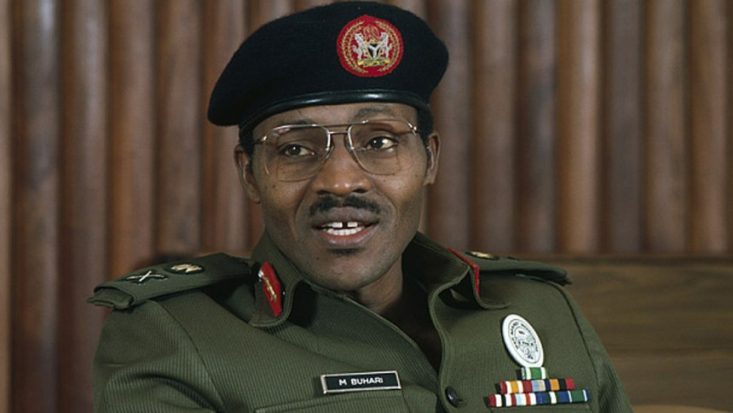
Buhari’s 1983 Coup Helped Plunge Nigeria Into Recession – Study
The military coup which brought Muhammadu Buhari to power in 1983 may have contributed to plunging Nigeria into economic recession.
This is according to a research paper in the August edition of the Central Bank of Nigeria (CBN) Journal of applied statistics with the title ‘Estimating and Forecasting the Impact of Inflation on Economic Growth in Nigeria Using Threshold Analysis’, by David O. K. Okoroafor, Sesan O. Adeniji and Timilehin Olasehinde.
According to the paper, the government’s policy of Structural Adjustment Programme (SAP) which commenced in 1980 entailed a number of austerity measures that was actually yielding some positive result by the high growth of Real GDP, before the Military intervention of General Buhari in December 1983.
“The economy was already on the path of recovery before the military coup of 1983; output of goods and services were improving as the economy was recovering from recession,” the authors David Okoroafor, Sesan Adeniji and Timilehin Olasehinde said in the August report.
The research paper contradicts the opening remarks of then military President Buhari who overthrew Shehu Shagari in a military coup on December 31, 1983, that promised among other things to save Nigeria from impending economic and political collapse.
The paper which looks at the linkage between inflation and GDP growth rate notes that a two digit inflation rate had become a phenomena in the 1970s as it averaged 15.12 percent between 1970 and 1979 while Money supply over the same period grew at a double digit rate of 33.08 percent.
“The Real GDP made improvement compared to the previous decade; it grew at an average of 31.01 percent. However the economy experienced negative growth rate in 1970 and 1979. For instance, the growth rate of Real GDP for 1978 was -7.32 percent,” the CBN report said.
The report admitted that some of the events that explained the behaviour of the economy included massive expenditure to reconstruct the war torn economy.
The report showed that economic variance could forecast inflation rate in Nigeria with higher degree of accuracy than normal Autoregressive Moving Average (ARMA) as findings from this study would enable policy makers to forecast the level of inflation and maintain policy effectiveness.
“This result is relevant for monetary policy formulation as it shows that monetary authority in Nigeria needs to consider inflation threshold for the country in the process of targeting single digit inflation as one of its major objectives,” the report said.
The report revealed the result of granger causality test which showed that inflation does not (granger) cause economic growth and economic growth does not (granger) cause inflation.
“One of government macroeconomic challenges is maintenance of price stability as attainment of inflation threshold of 14 percent would boost the economy and bring it to a steady path of growth,” CBN report said.
The study examined the causal relationship between inflation and economic growth as well as estimating threshold and forecasting of inflation in Nigeria for the period of 1961 – 2016. The study employed Granger causality test, Autoregressive Distributed Lag (ARDL), Autoregressive Integrated Moving Average (ARIMA) and a multivariate time series Vector Autoregressive (VAR) models.
–
Source: https://www.businessdayonline.com/exclusives/article/buharis-1983-coup-helped-plunge-nigeria-recession-study/






